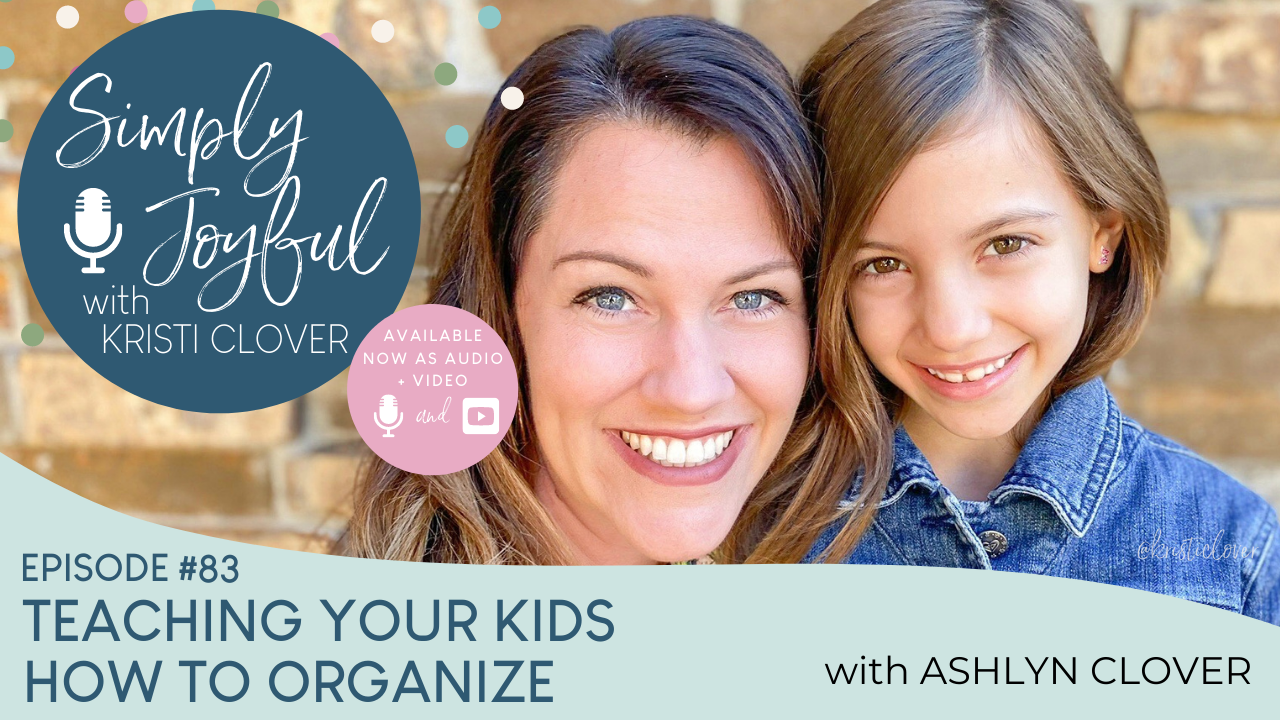Parenting a Strong-Willed Child: Part 2
May 16, 2015
Parenting a strong-willed child is not without its challenges. The tantrums and manipulation can exhaust the most patient parent. I guess the first thing to remember through this season of parenting is that: You are not alone!
The second thing to know is that there are some practical things that you can "try" while parenting your strong-willed kiddo. I say "try" because there is not always a sure-fire way to stop a meltdown or to end their strong will. But there are things you can try to do to make sure it happens less.
Not that my Stop, Drop, & Roll advice was not practical in my last post. But I personally like to get real-life examples. Real how-to's that relate to the situation I'm in.
The #1 thing that you can do is to be consistent! Like I mentioned in my last post in regards to the police officer example, calm, consistent, and immediate consequences are the answer to almost any parenting situation!
"Can you give us examples of some consequences you use?" you ask. Yes! Here are a few consequences that we use in our home. Remember, every child is different. There are also different seasons that different consequences work (and don't work). Just don't give up!
Consequences We Use in Our Home:
- "Grumpy" Room — This is usually our first line of defense with our littler kids. When they are acting up, we have them go into a designated room (or area) until they can calm down. The point is that we enjoy spending time with them, but we expect them to be kind and respectful to us and those around them. The "grumpy room" is kinda like a long time out, but they can come out when they feel in control.
- Exercise — Physical activity is a great way to get kids to re-focus. It helps them blow off steam and create some happy hormones (endorphins). I have the kids (even as little as 3) do jumping jacks, push-ups, go up and downstairs, or run laps around the backyard. A lot of times I have them do some scripture memorization at the same time. So after the first lap, they stop and tell me a verse, then do a second and repeat. We usually do our scripture memorization with a fun little cadence, so it often ends up being funny as they are doing their laps.
- Room Time — This is a big one in our home. This works really well with older kids, but I do have my almost 4-year-old doing it, too. Forget the "one minute per age of your child" scenario that you've heard. Room time is serious time. This is a major loss of privilege. Again, as I stated with the grumpy room, we expect our kids to treat and speak to others with respect. We usually start at half an hour and move up from there. If it's over a mealtime, I do take them food (but no dessert, of course).
- Loss of Privileges — This is a powerful tool to use, and it probably doesn't need much explanation. Desserts, treats, screen time, game time (on our family iPad), outings, family fun nights--really whatever is an "extra" privilege can be taken away for a time.
- Loss of Personal Favorites — This kind of goes along with loss of privileges. The difference here is that I will often put toys or lovies on "time outs" as a consequence. This is a good technique to use when kids are arguing over a toy. Relationships are more important than stuff. So, if stuff is causing covetous behavior, it is removed from the picture until they can play together nicely.
- "Parrot Parenting" — Another term I made up a few years ago (along with the grumpy room). Maybe I should trademark them. ;) Parrot parenting is simply when you teach them what they need to say by getting them to parrot you. Kids don't naturally know how to respond in situations, so I tell them what to say and have them repeat it. Or if they are forgetting a response like, "Yes, Mom" or "No, thank you," I just say what should have been said and have them repeat it. This is a great technique to use when you have kids who are not speaking with the right tone. You know what I'm talking about. I have them repeat what should be said, & HOW it should be said. I have an example of this in my last post. I start parrot parenting before they can even talk. I'm trying to imprint manners before they have words. :)
- Role Play — I discussed this one, too, in my first post on parenting a strong-willed child. Showing your kids the right behavior and reaction to the situation helps them to know what to do the next time.
- Sentences — For my older kids (my writers), one of the best way for them to "memorize" the behavior I want them to learn is to have them write out sentences that best reflect how they should have reacted. This kinda goes back to "parroting" and "role-playing." Sometimes I have them write out memory verses that pertain to the character trait they should have used in the situation. Besides, it never hurts to have some extra copywork time.
- Spanking — Controversy Alert: Yes, we spank. But our kids have really got to work hard to earn a spank. We only spank when there is outright, direct defiance -- not simply foolishness. Also, I never spank when I'm angry. If I am angry and they have earned a spank, then I put myself in a time out (& the child in the grumpy room) and wait to go in after I've calmed down and prayed. For our family we have specific steps to our spanking process: 1) They have to state why they earned the spank (name the sin). If they are too moody to tell me, I tell them what they did. 2) We discuss what should have happened. 3) We discuss the fact that their behavior was sinful and needs a consequence. 4) I have them submit by laying over my lap (if they don't they earn an additional spank...or spanks). 5) I use a wooden spoon, not my hand. 6) I quickly scoop them up and hug them. 7) We pray (while hugging or holding hands) and ask God for forgiveness and a clean heart. 8) We hang out and talk about things until I feel there is a restoration of our relationship. I usually try to get them to laugh. 9) Lastly, we go out of the grumpy room (did I mention that we always spank privately?) and apologize to anyone else that was wronged through the situation.I feel like I should point out that spanking is not always the best answer for every kid or for every situation. Adopted children who come from backgrounds of physical abuse would probably flourish more by using the other techniques. I never thought I'd spank my kids and was so offended to hear that people spanked their kids. Then the Lord gave me kids -- and strong-willed ones at that. I think that if spanking is done right and in love, then we shouldn't judge parents who choose this method of correction.
- Grace — Sometimes we just give our kids grace. It never hurts. Well, I guess it would hurt your chances of getting a change of heart if you make it the only method of discipline you use. :) But, giving your child grace when they deserve a consequence gives them a real-life understanding of what Christ did for them.
I really could write a whole book about all this, but that's not going to happen any day soon. So in the meantime, I pray these techniques help you as you parent your extraordinary child. Do know that all these consequences are delivered in love, with hugs, kisses, and words of affirmation. We love our kids tremendously, that's why we discipline them.
"Because the Lord disciplines those he loves, as a father the son he delights in." Proverbs 3:12
* Please note that my kids are awesome! I'm just being real with you that they aren't perfect — I've already admitted that I am not perfect. :)
Where to Start?
For now, figure out what is driving you the most crazy — you know that thing that takes you to the edge of your sanity -- and make a "battle plan." Think of how you will handle the situation next time it happens, what consequences seem to work the best for your child, a verse or two that might be applied to the situation, & PRAY!!!! Pray like crazy!!
A Few Other Thoughts:
One other thing that I can't neglect to mention is that diet and media both can contribute to meltdowns. Often too much sugar, unknown allergies, and food toxins (MSG, red food dye, fluoride, soy, etc.) can all trigger behavioral issues. Screen time, whether it's TV, gaming, or iPad educational games, can overstimulate the brain -- especially young brains. In some countries, it's illegal to allow kids under 2 to watch TV. I guess Big Bird would be arrested. ;)
{Now STOP! Before you rule me out as one of those health-crazed, conspiracy theorists, know that there is a lot of scientific (& experiential) fact to this. So, it is something to consider.} :)
A Few Books I Recommend:
The Heart of Anger by Lou Priolo
Don't Make Me Count to Three by Ginger Plowman
The New Strong-Willed Child by Dr. James Dobson
Creative Correction by Lisa Whelchel
Shepherding a Child's Heart by Tedd Tripp
I love all of these books and highly recommend them. They have helped me tremendously and have helped shape how I parent my kiddos.
Snag This!
GET A FREE DIGITAL COPY OF MY SANITY SAVERS FOR MOMS BOOK!
Join our community of moms looking for encouragement to find simple solutions to bring more joy into their #momlife.
We hate SPAM. We will never sell your information, for any reason.






